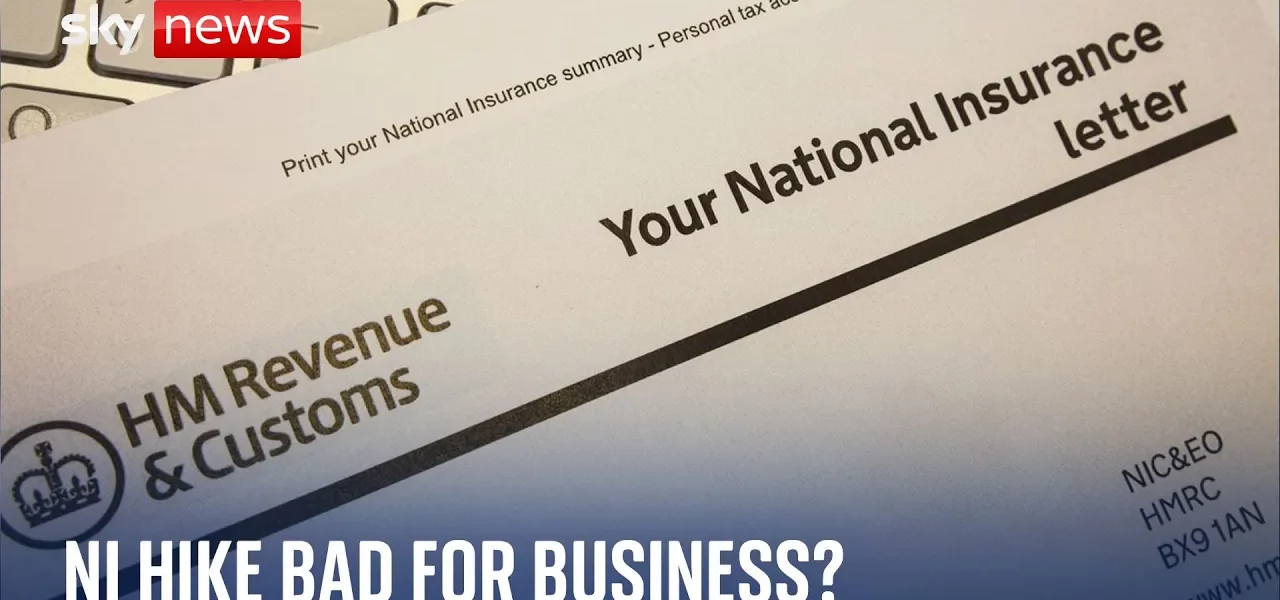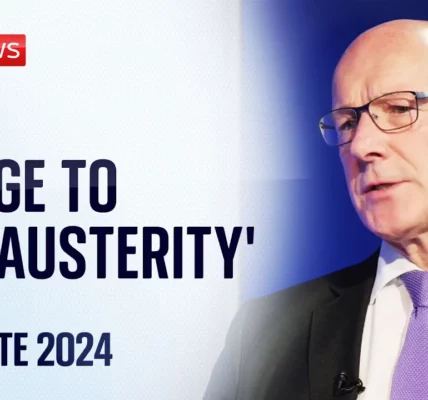Rachel Reeves: Labour’s Approach to Business and Upcoming Budget Implications

This article explores Rachel Reeves’ vision for Labour as a pro-business party, the significance of the upcoming budget, and the broader implications for the UK economy, particularly in relation to National Insurance and job creation.
Introduction
As the UK prepares for a pivotal budget announcement, Rachel Reeves, the Shadow Chancellor, aims to position the Labour Party as a champion for business. This article delves into the pressures facing the Labour government, particularly regarding taxation and employment, and how these factors could influence the party’s credibility and economic strategy moving forward. With speculation about potential tax increases, especially on National Insurance, the impact on businesses and the overall economic landscape is a concern for many stakeholders.
Labour’s Business Strategy Under Rachel Reeves
Rachel Reeves has made it clear that Labour intends to foster a pro-business environment. This section outlines her key strategies and the implications of the Labour manifesto.
Commitment to No National Insurance Increases
A central tenet of Labour’s manifesto has been a pledge against raising National Insurance contributions. This promise was designed to alleviate fears among employees and businesses alike, ensuring that the burden of taxation does not fall disproportionately on those already contributing to the economy.
- Reeves emphasized that taxes should not hinder job creation.
- The manifesto clearly stated that any tax increases would focus on wealthier individuals.
- Critics argue that raising National Insurance could counteract Labour’s pro-business image.
Political Reactions and Implications
The proposed changes in taxation have drawn significant attention from political opponents and business leaders.
Conservative Party’s Response
The Conservative Party has publicly criticized the idea of increasing taxes on businesses, framing it as detrimental to job growth. They argue that:
- Raising National Insurance is essentially a tax on jobs.
- It contradicts previous commitments made by the government.
- Such actions could drive businesses away from the UK.
Impact on Business Confidence
Business leaders have expressed concerns about the potential fallout from increased taxes. The former president of the CBI highlighted early missteps in the current government, suggesting that:
- Stability is crucial for attracting investment.
- Any disruption could deter potential investors from committing funds to the UK.
- Confidence in the Labour leadership is contingent on their ability to manage economic issues effectively.
Recent Developments and Challenges
Recent events have compounded the challenges facing Labour as they prepare for significant budget discussions.
Standoff with DP World
A notable incident involved a standoff with DP World, a global ports logistics firm that threatened to withdraw a billion-pound investment due to political tensions. This situation highlighted several key points:
- The fragility of business relations amid political disagreements.
- Labour’s need to present a united front to ensure economic stability.
- The importance of resolving labor disputes to maintain investor confidence.
Preparing for the Investment Summit
As global leaders converge for an investment summit, the Labour government faces pressure to demonstrate its commitment to fostering a conducive business environment. Key objectives include:
- Quelling fears regarding budgetary changes.
- Showcasing Labour’s dedication to economic growth.
- Reaffirming their support for job creation and higher wages.
Conclusion
In conclusion, Rachel Reeves’ vision for Labour as a pro-business party is being tested as the government prepares for its budget. The commitment to not raise National Insurance is essential to maintaining business confidence and fostering job creation. However, political pressures and recent challenges pose significant hurdles. As the Labour Party moves forward, it must navigate these complexities to ensure that it truly becomes the party of business it aspires to be. For more insights on the implications of Labour’s policies, explore our related articles on economic strategy and business confidence.
“`




